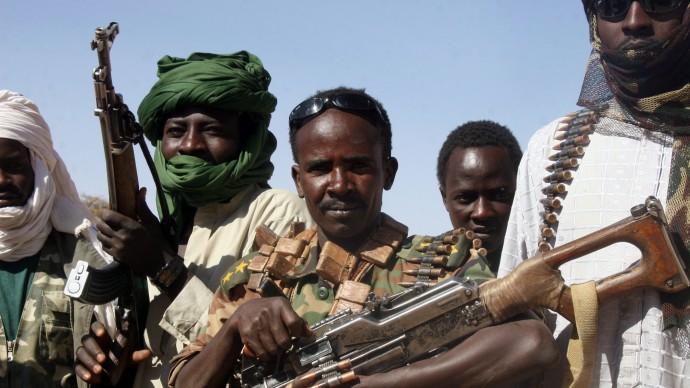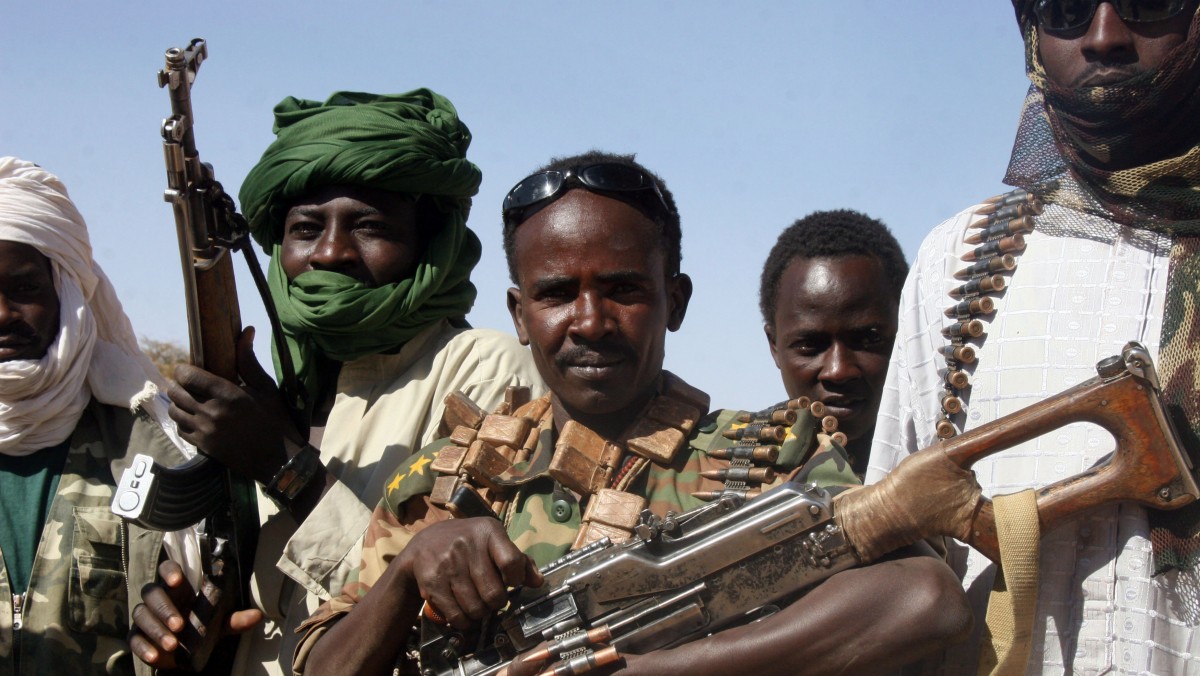
(NAMIBIA) MintPress – Schools closed in Darfur’s largest city in past weeks after at least eight people were reported killed following the region’s worst violence since demonstrations sparked by high inflation erupted earlier this summer.
“Eight citizens were killed and 24 injured including three police who are in a serious condition,” according to police quotes by the official SUNA news agency. Officials say it is unclear how the deaths happened; however, members of the opposition accuse police of firing live ammunition at the crowd.
The main market in Nyala, a focus of the demonstrations, also stayed closed after gunmen attacked and set fire to a police station – signalling re-emerging violence in Sudan’s western region, which has been racked with conflict and genocide for much of the past decade.
Bothina Mohammed Ahmed, spokeswoman for the South Darfur government, told AFP that the demonstration in Nyala started because students “rejected the price of transport announced by the government.”
Arab Spring-like demonstrations began in Khartoum in June among university students protesting against government austerity measures and high inflation. Sudanese President Omar Al-Bashir has been forced to cut spending since losing three-quarters of the country’s oil revenue when South Sudan seceded last year.
Since June, sporadic protests against tax hikes and an end to fuel subsidies have spread to other parts of the country. Protests in Nyala started two weeks ago with people chanting, “No to high prices” and, “People want to change the regime,” according to witnesses.
Violence persists in Darfur
According to SUNA, South Darfur Gov. Hamad Ismail believes unnamed Darfur rebel groups supported and stirred up protesters in Nyala. While much of the violence has subsided in Darfur since the insurgency began in 2003, rebel groups have continued to clash with government forces in many parts of the region.
African Union/United Nations peacekeepers UNAMID reported that gunmen also surrounded a camp for displaced people in Kassab in North Darfur state recently, apart from Nyala. UNAMID “requested the government investigate the reported attacks and abuses on civilians and the destruction and looting of equipment belonging to humanitarian agencies,” in a statement.
Gunmen also killed Abdelrahman Mohammad Eissa, the head of North Darfur’s Al-Waha district, a week from last Wednesday. Looting followed the killing, with men ransacking the U.N.’s World Food Programme in Kutum.
“Our office and guest house were looted,” said Amor Almagro, WFP spokeswoman. “Since the security situation remains tense and unpredictable we have decided to suspend our operation until the situation calms down.”
Kidnappings, armed robberies, murders, looting and pillaging continue daily across all five states of Darfur. Armed forces are routinely called in to restore security and stability. The Sudanese government signed a Qatar-brokered peace deal with small rebel groups last year. Darfur’s main rebel groups are yet to sign the agreement.
According to one U.N. official, “the increasing rate of violence is a growing concern.” Al-Hayat reported last week that 20 civilians are killed every day across Darfur – “the same rate that was witnessed at the height of confrontations between government troops and rebels in Darfur in 2004.”
Arms trade contributes to the violence
As violence continues to strike Darfur, Amnesty International has released a report accusing top international arms suppliers of contributing to the conflict. According to a 2012 report, “weapons, munitions and related equipment used by government security agencies and armed forces in Darfur have been regularly imported from the same state suppliers, including Belarus, China and the Russian Federation.”
The report states that “the markings [on ammunition found in Darfur] often indicate that they were manufactured – and thus transferred to Darfur – well after the establishment of the U.N. arms embargo on Darfur in 2004.” Some were found as recently as 2011.
Amnesty worries that the repeated appearance of ammunition in Darfur despite documented evidence previously presented to the United Nations Security Council suggests a lack of willingness on behalf of the international community to implement responsible arms export mechanisms.
According to the United Nations Office for Disarmament Affairs, “No set of internationally agreed standards exist to ensure that arms are only transferred for appropriate use.”
After a month of negotiations in late July, members of the U.N. failed to agree on an international treaty that would have increased regulations for the $60 billion arms trade business and worked to prevent the transfer of weapons used for human rights abuses like those in Sudan.
The ATT would have created “a global background check to prevent countries and arms exporters from selling guns and military hardware to … human rights abusers,” said Suzanne Nossel, executive director of Amnesty International, in a statement.
Top weapons exporters China and Russia were among those hesitant to sign the treaty, claiming more time was needed for review. The United States, accounting for over 40 percent of global conventional arms transfers, has taken most of the blame for the failed treaty, however.
President Barack Obama reversed former U.S. policy in 2009 by claiming to support an arms trade treaty. Entangled in a renewed debate about domestic gun rights this election season, Obama was under heavy pressure from senators and lobbyists to turn down the ATT this year. The U.N. Office for Disarmament Affairs claims that any arms treaty would not interfere with the domestic right to bear arms.
“The White House walked away at a critical moment by failing to move this treaty to conclusion,” Oxfam America’s senior policy adviser, Scott Stedjan, said in a statement. “It is a tremendous loss for thousands of innocent civilians around the globe who die each year from armed violence fueled by the unregulated transfer of arms.”
There is still a possibility that a draft treaty could be brought to the U.N. General Assembly for a vote later this year.


